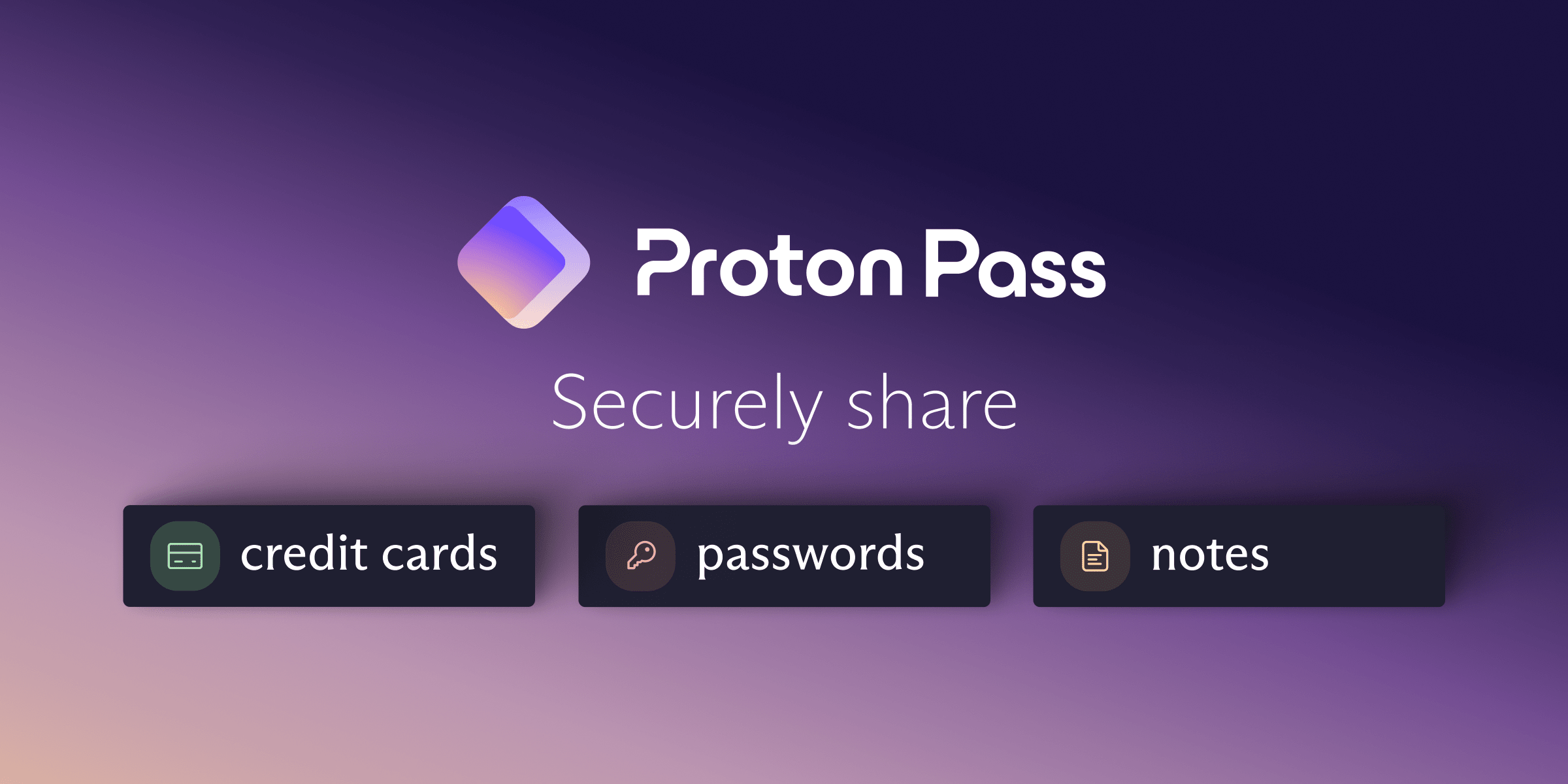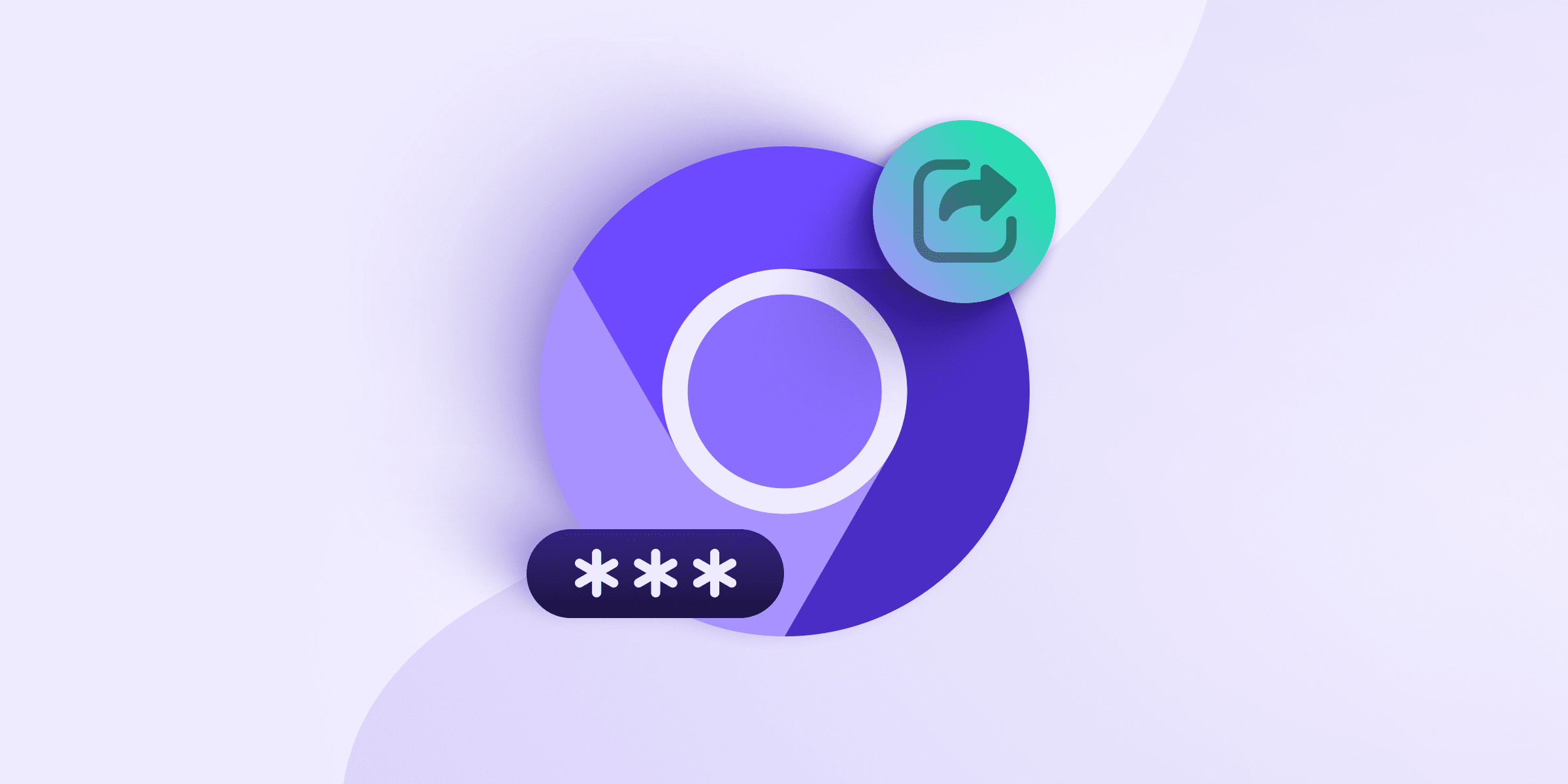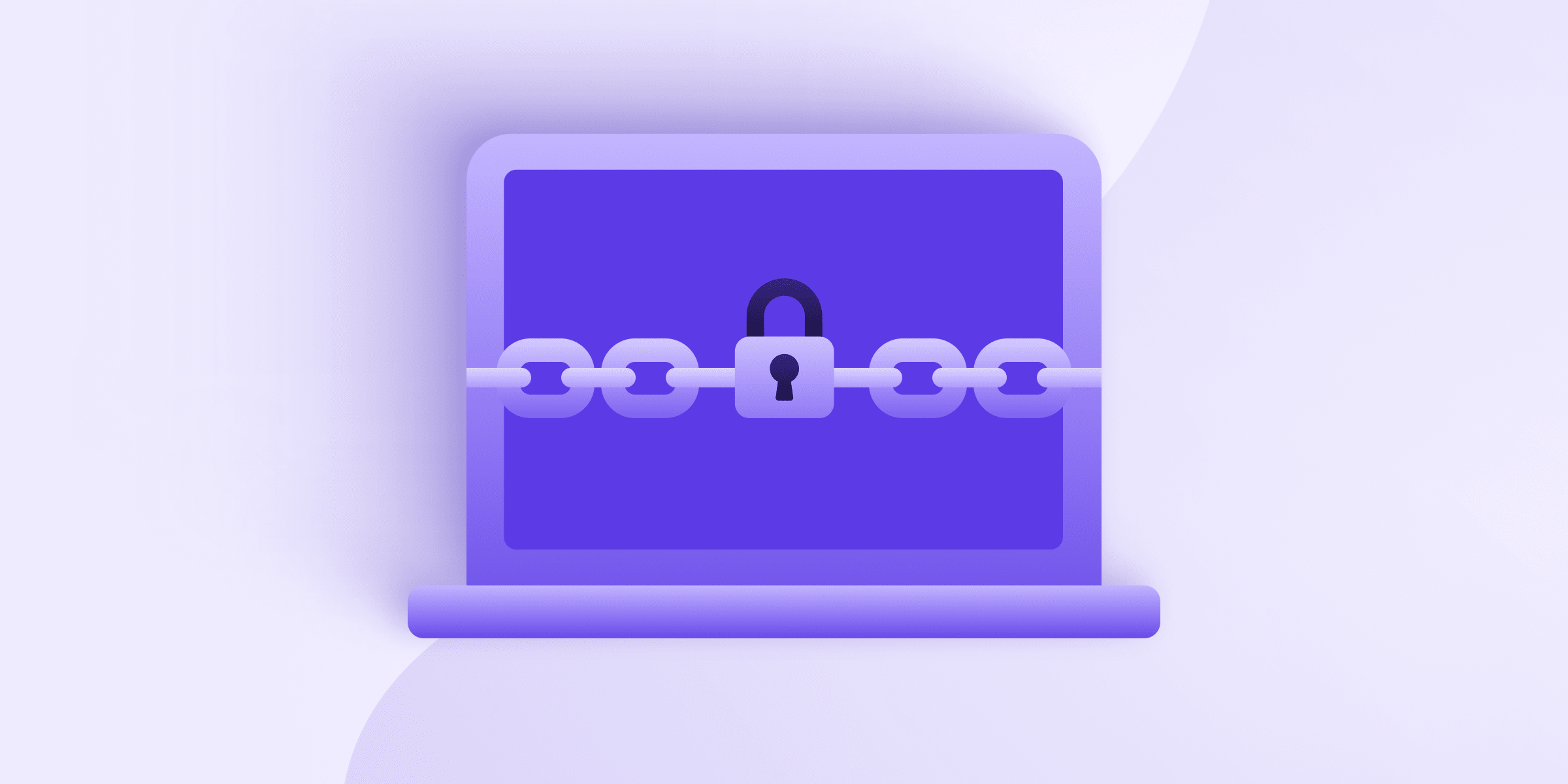Passwords are sensitive information and sharing them isn’t usually recommended. But sometimes there are good reasons you might want to give other people access to your logins:
- Sharing your streaming account with your friends
- Giving your partner access to a utility or bank account
- Sharing the company social media login with your work colleagues
Too often people share passwords via unsafe methods, such as Gmail. Even if you share passwords much more securely with Proton Mail’s encrypted email service(new window), it’s inconvenient to have to resend the information if you change the password.
The new Password Sharing feature in Proton Pass solves both the security and convenience problems. You can easily share your passwords, usernames, credit cards, and other data stored in Proton Pass with anyone. Your data stays end-to-end encrypted, and you can revoke access anytime.
How Password Sharing works
Proton Pass is our password and identity manager that lets you safely store login credentials, bank cards, secure notes, and other important data. Using our mobile apps and browser plugins, you can easily access and autofill your information on any device.
We’ve now made it simple for you to share your passwords and other data from within Proton Pass. Security is always our top priority, so Password Sharing uses end-to-end encryption(new window) at all times to ensure only you and the people you authorize can access shared data. You can learn the technical details of our encryption in the Proton Pass security model(new window).
To share data with someone, choose a vault or create a new one(new window) in your Pass account. On any device, tap Share and enter the email address of the person you want to share the vault with. They will receive an invitation to access the items in the vault.
As we mentioned, sharing in Proton Pass isn’t limited to just passwords. You can also share credit cards, secure notes, and Hide-my-email aliases(new window). Sharing is available on all our platforms(new window).
Share password vaults with anyone, for free
Sharing passwords with family and friends makes everyday life more convenient. When used in your workplace, you can speed up collaboration, control access to sensitive information, and improve productivity.
You can share with anyone, even if they don’t have a Proton Pass account yet. When they receive the invitation, they will be able to create a new account and access the shared vault with just two clicks.
Best of all, because Proton’s mission is to democratize access to security and privacy, Password Sharing is available to everyone with a Proton Pass account, including those with Free plans. If you have a Free plan, you’ll be able to share vaults with up to two others, which is more than any other free password manager. Paid subscribers can create up to 20 vaults with up to nine others per vault. You also benefit from the numerous other benefits of Proton Pass Plus, such as unlimited Hide-my-email aliases.
You can find more information about Password Sharing in Proton Pass here: https://proton.me/pass/password-sharing
Sharing is the first item in our roadmap for fall 2023(new window) so stay tuned for even more exciting features coming soon to Proton Pass!










